- Home
- Maggie Alderson
Pants on Fire
Pants on Fire Read online
Table of Contents
Title Page
Copyright Page
Dedication
Acknowledgements
Chapter One
Chapter Two
Chapter Three
Chapter Four
Chapter Five
Chapter Six
Chapter Seven
Chapter Eight
Chapter Nine
Chapter Ten
Chapter Eleven
Chapter Twelve
Chapter Thirteen
Chapter Fourteen
Chapter Fifteen
Chapter Sixteen
Chapter Seventeen
Chapter Eighteen
Chapter Nineteen
Chapter Twenty
Chapter Twenty-one
Chapter Twenty-two
Chapter Twenty-three
Chapter Twenty-four
Raves for the novels of international bestselling author
Maggie Alderson
Pants on Fire
“A witty, smart debut.”
—Daily Mail
“Fabulously glamorous . . . highly entertaining.”
—Heat
“Wickedly funny and realistic . . . the perfect read for
any girl who’s ever wondered if the grass might be greener
on the other side of the world.”
—OK!
Mad About the Boy
“A bubbly concoction of bitchiness, humor, glamour,
and eccentricity written with great verve and enthusiasm.”
—Sunday Mirror
Titles by Maggie Alderson
HANDBAGS AND GLADRAGS
PANTS ON FIRE
THE BERKLEY PUBLISHING GROUP
Published by the Penguin Group
Penguin Group (USA) Inc.
375 Hudson Street, New York, New York 10014, USA
Penguin Group (Canada), 90 Eglinton Avenue East, Suite 700, Toronto, Ontario M4P 2Y3, Canada
(a division of Pearson Penguin Canada Inc.)
Penguin Books Ltd., 80 Strand, London WC2R 0RL, England
Penguin Group Ireland, 25 St. Stephen’s Green, Dublin 2, Ireland (a division of Penguin Books Ltd.)
Penguin Group (Australia), 250 Camberwell Road, Camberwell, Victoria 3124, Australia
(a division of Pearson Australia Group Pty. Ltd.)
Penguin Books India Pvt. Ltd., 11 Community Centre, Panchsheel Park, New Delhi—110 017, India
Penguin Books (NZ), cnr Airborne and Rosedale Roads, Albany, Auckland 1310, New Zealand
(a division of Pearson New Zealand Ltd.)
Penguin Books (South Africa) (Pty.) Ltd., 24 Sturdee Avenue, Rosebank, Johannesburg 2196,
South Africa
Penguin Books Ltd., Registered Offices: 80 Strand, London WC2R 0RL, England
This is a work of fiction. Names, characters, places, and incidents either are the product of the author’s imagination or are used fictitiously, and any resemblance to actual persons, living or dead, business establishments, events, or locales is entirely coincidental.
Copyright © 2000 by Maggie Alderson
All rights reserved.
No part of this book may be reproduced, scanned, or distributed in any printed or electronic form without
permission. Please do not participate in or encourage piracy of copyrighted materials in violation of
the author’s rights. Purchase only authorized editions.
BERKLEY is a registered trademark of Penguin Group (USA) Inc.
The “B” design is a trademark belonging to Penguin Group (USA) Inc.
PRINTING HISTORY
Penguin Books Australia Ltd edition / 2000
Penguin Books Ltd edition / 2001
Berkley trade paperback edition / September 2005
Library of Congress Cataloging-in-Publication Data
Alderson, Maggie.
Pants on fire / Maggie Alderson.—Berkley trade pbk. ed.
p. cm.
eISBN : 978-1-440-68466-1
1. British—Australia—Fiction. 2. Separation (Psychology)—Fiction. 3. Australia—Fiction.
I. Title.
PR6101.L44P36 2005
823’.92—dc22
2005047824
http://us.penguingroup.com
In memory of Douglas Alderson
acknowledgments
I wish to thank the following people without whom this book would not have been possible:
The very wonderful Julie Gibbs—a jewel among women. Fiona Daniels and Hannah Robson for assiduous editing and life support—one Skip, one Pom, two treasures. Debra Billson for another fab cover. And all the Penguins, especially Gabrielle Coyne, for being so delightful to work with. Valerie and Tim Olsen for lending me Bower Bird Cottage, a very special place where much of this book was written and the bower bird came to see me. My mother Peggy for not complaining too much about the amount of time I spent holed up in her study and my sister Mary for reading the result with her legal-eagle eye. Mia Freed-man, Wendy Squires and Lisa Wilkinson for the hilarious year at Cleo and Paula Joye for keeping the flame. Josephine Fairley for being such a very good friend. My lady writer pals for advice and friendship: Jessica Adams, Kathy Lette and Karen Moline. And Helen Garner for precious words of encouragement. John Alexander for allowing me to leave the Herald on a long piece of elastic. Greg Hywood and Paul McGeough for allowing me to take more unpaid leave to finish this book. Everyone in Sydney who has ever invited me to a party—especially Deeta Colvin for four unforgettable Cointreau Balls. Spikey Carr for the gallery. And darling Popi, for being there. Smiling.
Kookaburra sits on the electric wire, Jumping up and down with his pants on fire.
Children’s rhyme, Australian
Chapter One
Of course an erect penis is all very well at the end of a party, rather to be desired generally, but it’s not the first thing you expect to see when you enter the room. Yet there it was, in all its concupiscent glory, on the head of a man with a small goatee beard.
I’d been feeling a tad conspicuous in my own headgear coming along the road but, on seeing this creation, my two-foot halo of flamingo-pink feathers, cunningly fashioned out of three cheap feather boas, suddenly seemed a bit tame.
“Well, you certainly seem to be enjoying yourself,” I said to Dickhead, leaning past him to refill my glass with champagne. I’d already drained the first one in the five paces between the waiter at the door and the drinks table in the corner of the large white room.
“Did you make it?” I asked him, taking a closer look at the lovingly painted papier-mâché.
He turned, giving me a very unsubtle once-over.
“You know somewhere you could buy one of these? Of course I made it.”
“Clever old you. But why?”
“Become I come to this party every year. Which means that every Australia Day for the past twelve years, I’ve been in this room, wearing a stupid hat. I’ve always felt like a dickhead, so this year I thought I might as well look like one, too.”
I nodded enthusiastically—this was my kind of conversation.
“So, following your argument, am I to take it that the guy over there wearing the Indian chief’s headdress has always felt like one of the Village People and now he’s decided to go public about it?”
“Loud and proud, baby. And that’s the other reason I’m wearing a big fat dick on my head. Because that’s what this party is really all about.”
“Big fat dicks?”
“Yep. They might be talking about opera, or the government’s new policy on unemployment benefits—which stinks, incidentally—but what every man in this room is really thinking about is cock.”
“You included?”
“Oh yes. Es
pecially me.”
I hoped my face didn’t fall too obviously. Not that I’ve got anything against gay men—in fact, you could probably describe me as a full-blown fag hag. I just didn’t particularly want this bloke to be gay. He was very attractive in an odd way, despite the ghastly goatee, and he was funny. Even when he was being quite rude I couldn’t help noticing he had beautiful green eyes, and I liked the way they creased up when he licked the paper on the joint he was rolling. And I liked the way he lit it, took a quick toke to flame it up and then held it to my lips.
“The only difference,” he explained, as I sucked prettily, “is that I’m thinking about my own.” With which he took the joint out of my mouth, clamped it between his teeth, winked and pushed his way back into the crowd, holding four glasses and a bottle of champagne.
“And if you want to continue this conversation,” he said over his shoulder, “try the back bedroom.”
“Otherwise known as the Persian room,” said a voice from behind me.
I turned round to see a slim man, dressed entirely in black. He was about thirty-five, with dark skin, short black hair standing up straight like a brush, and one ironically raised eyebrow. You noticed the eyebrow particularly, because it stayed raised whatever the rest of his face was doing.
“Persian?” I said, picturing a lavishly tented parlour, with belly dancers and Nubians.
“Persian rugs. Drugs. Antony Maybury, how do you do?” He held out his hand.
“Georgia Abbott, lovely to meet you.”
“Yes, I know, the famous Georgiana Abbott. I was wondering when I’d meet you. Good handshake. That looks like a real Pucci catsuit. Nice shoes.”
“What? How kind, although I wouldn’t say I was famous. How did—”
“Darling,” he said, both eyebrows now working in turns. It was like watching a puppet show. “What you have to understand is that this is a very small town and you are new to it. You’ve moved here from London, an acme of world glamour, rivalled in our colonial imaginations only by New York. You have worked for European magazines, which we buy like slavering wretches at vastly inflated prices when the cover date is already three months old because we think they might let us in on all the interesting stuff that’s happening over there in the fashionable hemisphere. We’ve seen your name in print, and I know for a fact that you have been to Naomi Campbell’s house and have Karl Lagerfeld’s home phone number. To us, you are famous.”
He looked me straight in the eye, as he lit a very long cigarette with a very gold lighter. One eyebrow was still up there, which seemed quite an achievement with all the eyeballing and cigarette lighting that was going on.
“Blimey,” I said.
“Well, enjoy it, because this may be a small town by world standards but it’s a tough one. The knives are just as sharp here as they are on Fleet Street or wherever, and they are wielded by the most surprising people.
“And two other things.” He counted them out on his fingers. “One: watch out for that Jasper O’Connor, he’s as big a prick as he looks in that stupid hat; and two: you need to have manicures. Sydney is a nails town. You’re a smart girl, you’ll find out. In the meantime, if you’d like some more unsolicited advice, call me. This is my card. Goodbye.”
With one last salute from his eyebrows, he picked up one empty glass and two full bottles of champagne and shouldered into the crowd.
Feeling slightly like I’d just been mugged, I looked down at the small card he’d given me, which said “Antony Maybury. Costumier,” and automatically ran my finger over the type to see if it was engraved.
“Yes, it is braille,” I heard him say, but when I looked up, he’d gone. And then I realised something else about Antony Maybury, costumier. He was the only person at the party not wearing a hat.
Even though it was just after four in the afternoon the place was already pumping, and the lavishness of the headgear made the room seem even more crowded than it was. The noise level was unbelievable, with shrieks of hilarious laughter and general yelling almost drowning out the DJ. There seemed to be all age groups here, from beautiful young creatures to middle-aged men and women, and they were all milling around, hopping from group to group and greeting each other with great hugs and cries of delight.
I had been invited to this fixture in Sydney’s alternative social calendar just a few nights before, when I’d met its host, Danny Green, at a special preview of an exhibition at the Powerhouse Museum.
I wasn’t aware I knew Danny until he bustled over to me, with three cameras around his neck, kissed me warmly on both cheeks, and pushed me together with two total strangers to take our picture. I had no idea why and it seemed rude to ask. He seemed very nice, whoever he was.
“Oh and Georgie,” he’d said, after asking how to spell my name and ignoring my repeated corrections of “Georgia, not Georgie, Georgia.” “You must come to my Australia Day party this weekend. Everyone comes—you’ll love it. You can meet all of Sydney in one go. It’s in my studio and the only rules are: wear a hat and bring a bottle. I lay on the tea. Everyone lays on top of everyone else.”
He whooped with laughter and thrust an invitation at me, featuring a picture of him in a Mad Hatter’s topper with a condom tucked into the band, holding a black poodle wearing the same.
“And the great thing is,” he added, conspiratorially, “even though it’s on a Sunday, everyone’s got the Monday off, so we can get as trashed as we like.”
When I got home that night I called the only person I felt I’d really got to know in the two weeks I’d been in Sydney, to find out if I should go or not.
Liinda Vidovic was the features writer at Glow magazine, where I worked. It’s a monthly glossy aimed at eighteen- to twenty-six-year-old women and full of useful information about orgasms, lipstick with the precise anatomy of the male sexual organs. Following our advice, conscientious readers of Glow could learn to jog in high heels, lose weight through multiple orgasms, exercise their stomach muscles while delivering the perfect blow job and balance their cheque books while flirting with the boss (male or female, we advocate flirting with everyone, even dogs and inanimate objects).
When I came in as deputy editor, Liinda and I bonded on sight because we had the same Prada handbag. (I didn’t find out until later that hers was a Bangkok fake.) I was also intrigued to find out that she’d changed her name from Linda to Liinda by deed poll, because it was more fortuitous in numerology, one of the many ologies which rule her life.
Bag aside, Liinda was also thrilled to meet me because she knew I’d arrived from London with a severely broken heart. Liinda loves emotional catastrophes more than anything. There’s always the chance she might get a feature idea out of them. I was shaping up to be “If You Leave the Country, Will He Leave Your Heart?,” which was definite coverline material. And coverlines are everything on a magazine like Glow. As the editor, Maxine Thane, is always telling us: “Coverlines are what sell magazines, girls. Not all the shit inside.”
I did believe Liinda liked me—she had done my astrological chart within an hour of our meeting and announced with glee that we were destined to have an intense, supportive friendship punctuated with major dramas, because she is a triple Scorpio and I am a Gemini with Scorpio rising. But I was also aware of the coverline factor, although I couldn’t really blame her—my romantic disaster was a gothic horror.
The man I had come to Australia to forget is called Rick (rhymes with . . .) Robinson. What can I tell you about him? He’s the senior art director at a major London advertising agency. Very highly paid, very good looking (black hair, blue eyes, devastating smile, that kind of thing), very bright, very successful, very groovy. We’d been together for five years and were, in fact, “engaged” (a “hideously” bourgeois term, according to Rick). But it wasn’t his impressive CV and vintage Mercedes convertible that attracted me—I really loved Rick. He was funny. He was thoughtful. He was an Exocet missile I bed.
And yes, it was too good to be true . . . I came
home one evening ready for a cosy night in front of a video, but when I hit play on what I thought was Roman Holiday, I was treated instead to a home video of Rick strutting around naked, flexing a cane, while a melon-breasted hooker dressed as a schoolgirl lolled on our sofa. She wasn’t wearing any knickers.
Rick had been surprised when I left him (“I didn’t think you’d mind, George . . .”). So were my friends—he was rich, nice and good looking, was I crazy? I’d never felt saner. Although I felt slightly less sane two years later, when I was still single—and Rick was living with one of my erstwhile friends. I was lonely, I was horny and I bloody well missed him.
Then, one particularly gloomy London December day—the kind when the grey sky sits on your head like a tight hat—Tina, the Australian picture editor on Kitty magazine (where I was working at the time), came to my rescue. I was sitting in my office sobbing—as you do—because I had just opened Country Life to a page announcing the engagement of yet another dumb, bun-faced girl I’d been to school with (to the heir to a minor earldom).
“What you need,” said Tina, understanding the situation in an instant, “is some sunshine and a good root.” Then, after explaining what a “root” was, she told me she’d heard there was a job going back in Sydney on Glow. I stopped crying immediately. A little ray of sunlight lit up my brain. I already knew the mag and loved it. We had it airmailed over to the Kitty office every month, so we could rip off all their ideas. I’d love to work on Glow, I decided—and wasn’t Sydney full of gorgeous men who looked like Mel Gibson, but taller?

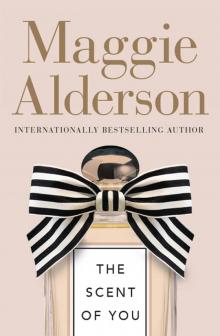 The Scent of You
The Scent of You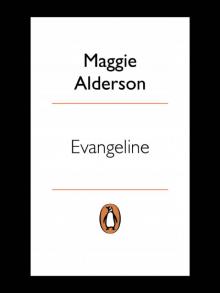 Evangeline Wish Keeper's Helper
Evangeline Wish Keeper's Helper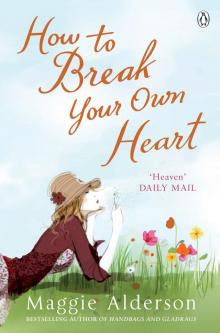 How to Break Your Own Heart
How to Break Your Own Heart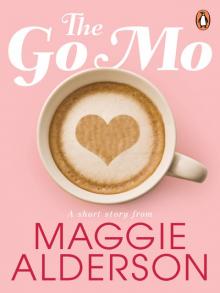 The GoMo
The GoMo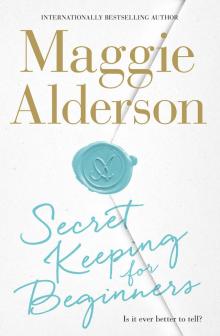 Secret Keeping for Beginners
Secret Keeping for Beginners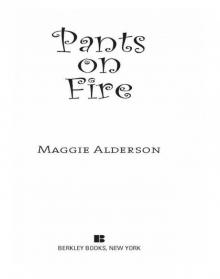 Pants on Fire
Pants on Fire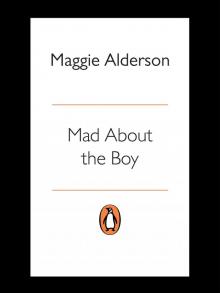 Mad About the Boy
Mad About the Boy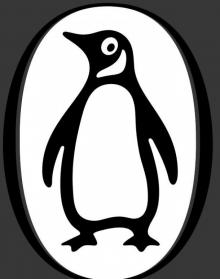 Handbags and Gladrags
Handbags and Gladrags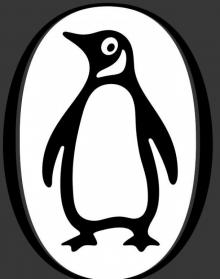 Cents and Sensibility
Cents and Sensibility